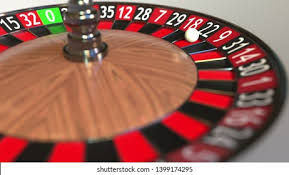Remember Dion and the Belmonts in 1959 crooning, “Why Must I Be a Teenager in Love”? “Each night I ask the stars up above, why must I be a teenager in love” I don’t know that my eighth graders and I substantially improved the lyric with our homage (parody?) in 1978, “Each night we ask the stars in our bath, why must we be teenagers in math?” The verse, such as it was, “some days we get the As, some days we get the Rs, guess we will have to study, or take a bus to Mars” was significantly lacking in brilliance 40 years ago and like a bottle of rancid wine, has not improved over time. Hey, I was a just beginning my career as a math teacher; I maintain that the kids enjoyed performing for the rest of the middle school almost as much as they appreciated not learning algebra for a few minutes each day.
There is no harm in not appreciating this truly terrible song. The dangers of innumeracy on the other hand are quotidian and real. People can live long, healthy, and financially secure lives without understanding the first thing about right triangle trig never mind first-semester calculus. My math-loving friends and I might argue that something is lost, but many folks plod along just fine without having noticed “when in disgrace with fortune and men’s eyes, I all alone beweep my outcast state and trouble deaf heaven with my bootless cries,” or Beethoven’s Ode to Joy. I suppose never seeing a field of tulips in bloom or hiking up a dirt path beside a clear stream won’t kill you. But not understanding The Rule of 72 or the dangers of compound debt or the reason that the house always wins can damn you to a life to financial misery and concomitant stress. Nobody wants to still be working at 78 years of age because they didn’t understand arithmetic and made terrible investments.
Examples of the life-threatening dangers follow. But feel free to skip the paragraphs if you are feeling queasy or are in a particularly non-math-y mood. You won’t lose anything important in the narrative. I will still make my point without the details. You only have to read the takeaways. The particulars—which admittedly, I absolutely adore—can be omitted.
The likelihood of making a perfect bracket in the March Madness Tournament are around two raised to the 64th power (actually even worse as there are 68 teams rather than “only” 64) or about one in 10 to the 20th, something like one in 100,000,000,000,000,000,000. The odds of winning the lotto are (again “only”) one in about 10 to the ninth, odds vary a little by state, or one in 1,000,000,000. You are much more likely to win the lotto than you are to make a perfect prediction about which team will win each game in the tournament.
But if you invest any real money, say paying a hundred dollars for the chance of winning even a billion bucks, that is the suckiest sucker bet of all sucky sucker bets. You are more likely to be struck by lightning WHILE being bitten by a shark WHILE kissing a left-handed red head whose middle name is Fred. You are not going to make a perfect bracket. You would be better off investing that hundred dollars in—literally—anything else.
Similarly, the house always wins. All you need to know is that the billion dollars necessary to build, maintain, and staff the casino wasn’t raised by giving money away to every optimistic yokel who felt good about Black 22 coming up next. Roulette pays about 95 cents for every dollar “invested.” After 10 spins of the wheel, chances are you will have about 58 cents. Turning a dollar into 58 cents is a bad investment. Of course, after 10 consecutive wins, your dollar could be $1024. For a more precise definition of “could”, see the above paragraph about the chance of being bitten by a shark on a Thursday–but only a shark named Fred, in particular a shark named Fred who doesn’t understand the expected value theorem either.
Here’s another particularly insidious instance of innumeracy that can cause unnecessary stress to the unwary: THE CHANCE OF GETTING A HORRIBLE LIFE-THREATENING, ICKY DISEASE TRIPLES FOR PEOPLE WHO RUN MARATHONS BACKWARDS. Which sounds terrible and probably is terrible in that I don’t want a life-threatening, icky disease any more than you do. But if the chances were one in 10,00,000 before and are now three in 10,000,000, that’s a distinction without a difference. Maybe Fred the Left-handed, red-haired Shark should think twice about swimming 26.2 miles backwards, but you should be fine. Yes, three is bigger than one, but three chances out of ten million as opposed to one chance out of ten million isn’t something to worry about.
Speaking of implements of math instruction, why is it that so many of us suffered with our mathematical education? As long-time readers know, this author failed Algebra II in 11th grade and was told by my teacher that he would pass me for the year only if I promised never to take math again. Ouch!
I think part of the problem is that so many math teachers play “gotcha” rather than leaving their ego at the door of the classroom and trying to be understanding and gracious. There’s a story—I don’t know if it’s true—about a math professor going through customs at the airport. The professor is taken to a small, poorly lit room and interrogated. “Where did you travel? Why did you leave the United States? What did you buy? Are you sure you don’t have anything to declare?” The professor answered the questions of the immigration officer patiently and politely but after a period of time became frustrated and asked the officer whey he had been singled out and was subject to so many questions. “Now you know how I felt in calculus class” was the reply.
But whether your experience learning math was as miserable as mine was or something approaching pleasant, your kids have to know about compound interest, expected value, untenable student debt, Because innumeracy is expensive, debilitating, and nothing to sing about.






